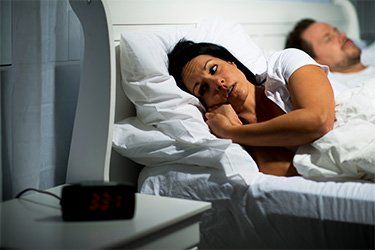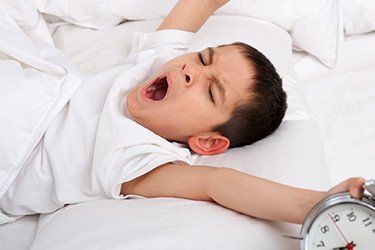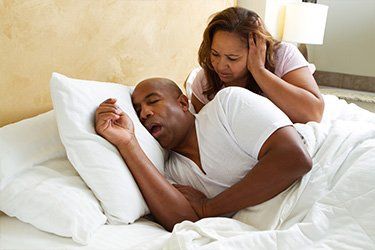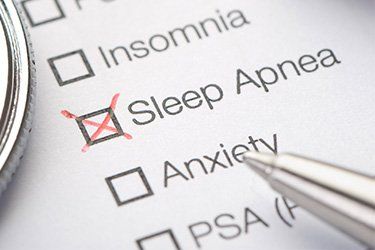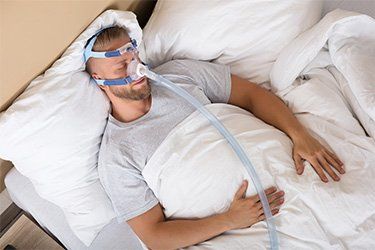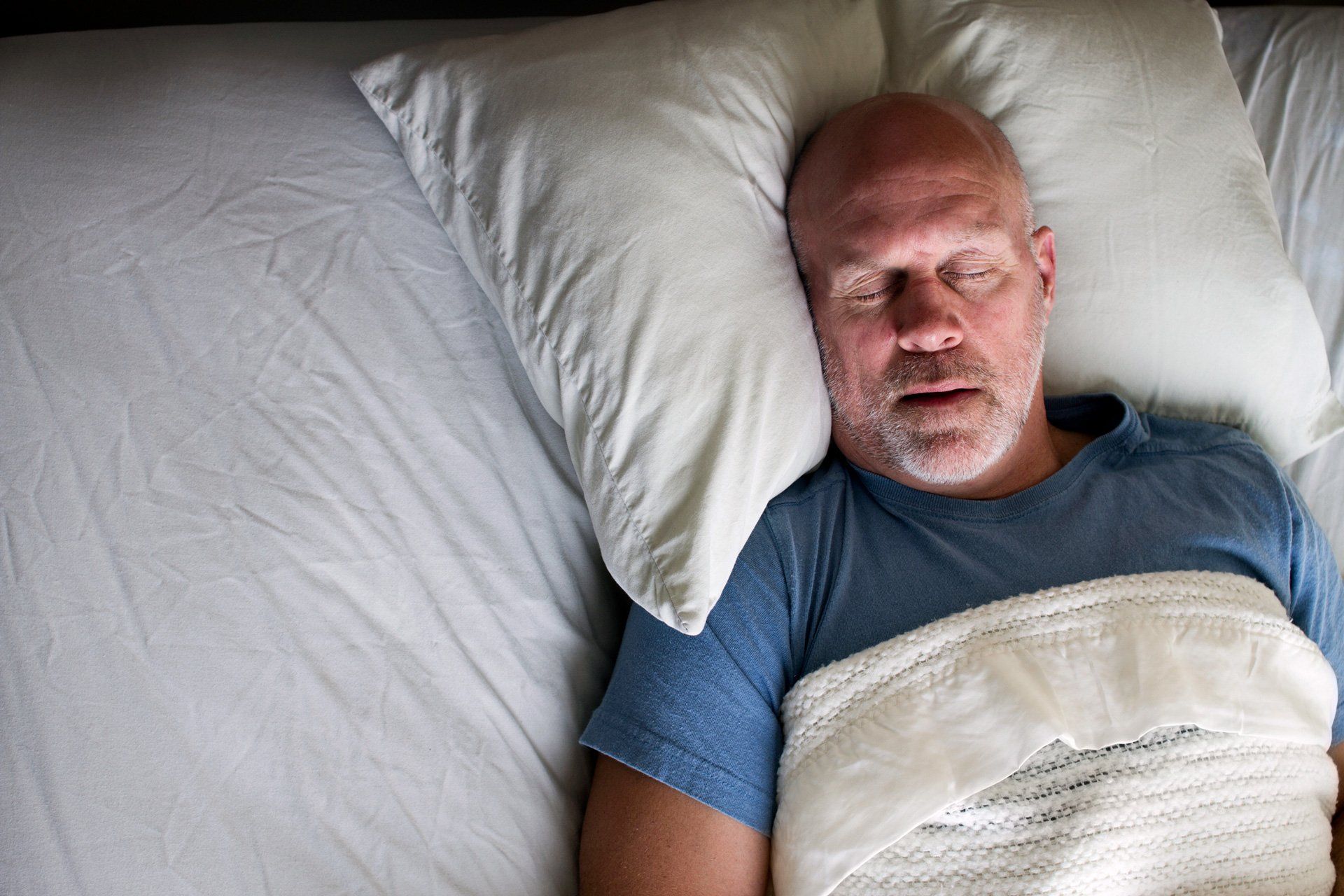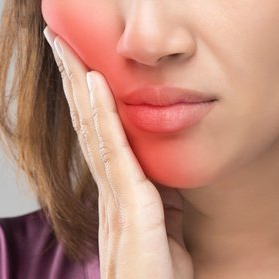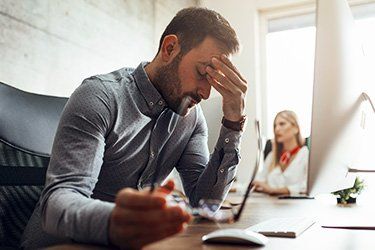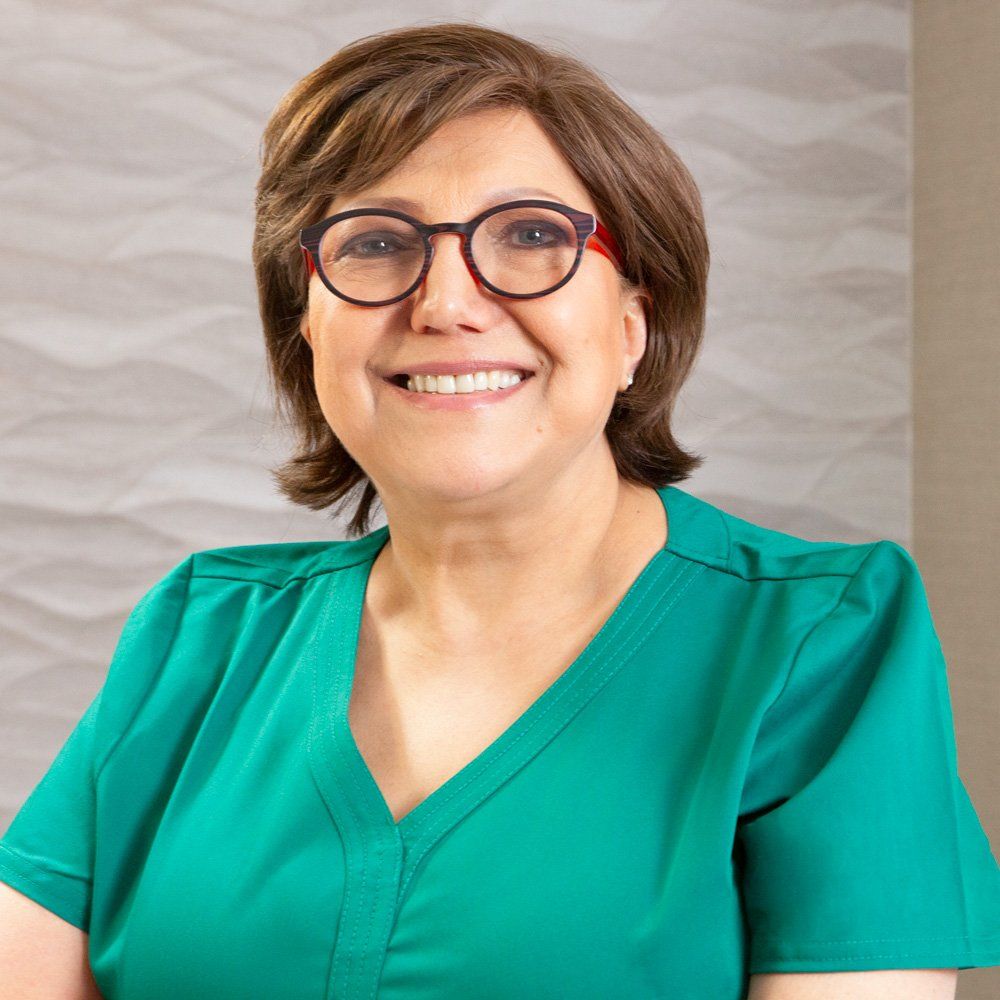What Is Obstructive Sleep Apnea?
Obstructive sleep apnea (OSA) is the most common type of sleep apnea. This condition affects an estimated 2% to 9% of adults in the United States, though it is possible that many more cases go undiagnosed. This condition tends to affect men more than women, with men being three times more likely than women to develop obstructive sleep apnea syndrome in their lifetime.
When you sleep, your body goes into a relaxed state. The muscles in the back of your throat are not meant to relax too much, however. When the muscles that support tissues in the back of your throat relax more than they should, your airway narrows and you can’t draw in sufficient air. In some cases of obstructive sleep apnea, your tongue also drops back into your airway, further blocking airflow.
Your brain recognizes this problem immediately and signals the emergency. You may start to strain to breathe, snort, gasp or choke. Because you are not breathing properly, the level of oxygen in your blood gets lower which signals to your brain that something is wrong. Finally, the emergency rouses you enough that you partially wake up and take a big breath
This problem repeats throughout the night. In fact, it can happen dozens of times per hour, and each incidence of choking is followed by your body waking up. You likely will not remember waking up multiple times throughout the night, but you will feel the effects in your body the next day.
The dual effects of fragmented sleep and low blood oxygen levels create a severe strain on your energy, alertness and overall health. Repeated oxygen starvation contributes to mental, behavioral, and emotional problems. The combination of stresses to your body can also lead to serious medical conditions such as:
- Hypertension
- Heart disease
- Diabetes
At Breath of Life Dental (BOLD), Dr. Maryam Seifi recommends oral appliance therapy to adult patients suffering from obstructive sleep apnea. The Vivos Biomimetic Oral Appliance in particular is proven to relieve this condition permanently and enables a person to experience uninterrupted, restful sleep.
Is the Vivos Appliance Right for You?
To learn how you might benefit, contact Breath of Life Dental today to attend a free educational seminar or schedule a personal consultation with Dr. Maryam Seifi. Call us as (301) 770-1070 , email us at info@breathoflifeteam.com or submit an online request.
Obstructive Sleep Apnea Symptoms
If you are worried that you might have obstructive sleep apnea, you should learn the signs and symptoms that indicate you may be dealing with this sleep disorder. The most common symptoms include:
- Loud snoring
- Waking up abruptly to gasp for air
- Waking up choking
- Headache, dry mouth, or sore throat in the morning
- Trouble focusing throughout the day
- Unexplained mood changes
- Sudden irritability or short temper
- High blood pressure
- Low sex drive
- Feeling exhausted no matter how much sleep you’ve had
- Someone tells you that you stopped breathing when asleep
Should I See a Doctor about Sleep Apnea?
If you think you might have sleep apnea, you should definitely schedule an appointment with a doctor or dentist to get examined. This is especially important if you have experienced the following symptoms, or if your spouse has observed them in you during sleep:
- Snoring loud enough to wake yourself up
- Loud snoring that interrupts your partner’s sleep
- Waking up gasping or choking
- You stop breathing intermittently when asleep
- Excessive daytime exhaustion that interferes with your daily life
By itself, snoring doesn't necessarily mean that you have sleep apnea. The distinction between common snoring and that which can indicate obstructive sleep apnea is: does it interrupt your sleep or your partner’s sleep? If it is so loud that it wakes you up, you should bring this up with your doctor or dentist at your appointment.
Untreated sleep apnea can lead to more serious medical complications, so it’s important to get treatment right away. This is especially true if you have severe obstructive sleep apnea, which can be life-threatening.
Who Is at Risk of Developing Obstructive Sleep Apnea?
Obstructive sleep apnea can affect anyone no matter their age or gender. However, there are certain factors that can put you at an increased risk of developing sleep disorders like obstructive sleep apnea. These factors include:
Medical Complications Associated with Obstructive Sleep Apnea
Untreated obstructive sleep apnea can lead to serious medical complications beyond the deterioration of your health. Treating obstructive sleep apnea is necessary to protect against:
How Can We Help You?
How Is Obstructive Sleep Apnea Diagnosed?
If you suspect that you might have obstructive sleep apnea, you should consult your general practitioner or dentist. They will ask about your symptoms and examine your throat, jaws, sinuses, etc., to see if you are likely suffering from sleep apnea.
Your doctor or dentist may refer you to a sleep center for additional testing and evaluation to diagnose the specific type and severity of your sleep apnea. You may be asked to spend the night at the center so that a sleep specialist can monitor your breathing and other bodily functions with special equipment. This equipment can track your:
- Heart rate
- Breathing
- Brain activity
- Arm and leg movements
- Blood oxygen
You may spend the entire night at the sleep center, or you may be given a split-night sleep study. If it’s the latter type of sleep study, the specialist will monitor your bodily functions for the first half of the night. If obstructive sleep apnea is diagnosed, they may wake you up to have you use a continuous positive airway pressure (CPAP) machine for the second half of the night to ensure it resolves your symptoms.
Once the specialist has collected this data, they can determine if you have mild or severe obstructive sleep apnea and give you the official diagnosis so you can start treatment. If sleep apnea is not the cause of your symptoms, the sleep specialist will be able to determine if you’re suffering from other sleep disorders.
Ways to improve sleep apnea symptoms
If your obstructive sleep apnea is caused by lifestyle habits, there are steps you can take at home to reduce your symptoms. These lifestyle changes can also help those at a higher risk of developing sleep apnea to protect their health.
You may be able to improve your obstructive sleep apnea symptoms in the following ways:
Obstructive Sleep Apnea Treatment
There are several treatments available for people suffering from sleep apnea. The best treatment for you will depend on your overall health, your comfort level, and the severity of your sleep apnea symptoms. The most common treatments for sleep apnea include:
A Revolutionary New Treatment for Obstructive Sleep Apnea
At Breath of Life Dental (BOLD), we use oral appliance therapy to treat obstructive sleep apnea. Dr. Maryam Seifi has extensive training and experience in this method of treatment, and she has helped countless people to get a great night’s sleep.
Using specialized oral appliances, Dr. Seifi can treat sleep-related breathing disorders like snoring and obstructive sleep apnea. This simple therapy is used all over the world as an excellent alternative to CPAP and surgery for treating sleep apnea.
Dr. Maryam Seifi highly recommends the Vivos system of oral appliances to treat obstructive sleep apnea because unlike the common treatments mentioned earlier, the Vivos system can actually handle the underlying causes of your OSA.
What does this mean for you? It means that once you have completed your sleep apnea treatment with the Vivos system, you won’t have to use the oral appliance any longer! You will simply be able to get a good night’s sleep without worrying about choking or waking up multiple times per night.
How Does the Vivos System Work?
The Vivos system uses custom-fitted oral appliances to treat the underlying causes of obstructive sleep apnea. This appliance will change the shape and position of your jaws and palate, similar to how traditional braces reposition your teeth.
With gentle, continuous pressure, the Vivos appliance can correct your jaws’ alignment and size to widen your airway. This is a permanent treatment that will reduce your obstructive sleep apnea symptoms and enable you to get high-quality, restful sleep.
The Vivos oral appliances are removable and designed to fit comfortably in your mouth. You will wear your appliance for about 12-15 hours per day over the course of your treatment. While wearing it, the Vivos appliance will relieve your symptoms. Once your treatment is complete, you should no longer suffer the effects of obstructive sleep apnea.
Benefits of Using the Vivos Oral Appliances
Dr. Maryam Seifi recommends the Vivos System of oral appliances to her patients because it offers incredible benefits that the other sleep apnea treatments don’t.
When you wear your Vivos oral appliance as directed, you will experience these great benefits:
- Comfortable oral appliance
- Easy to put on and take off
- No noisy machines
- No constricting masks
- All-natural pain relief
- Nonsurgical treatment
- Non-invasive treatment
- Fix oral posture
- Permanent results
- Improved quality of sleep
- FDA approved
And unlike a CPAP or BiPAP machine, treatment with the Vivos oral appliance is not a lifelong commitment. Once you complete your treatment, the underlying causes of your obstructive sleep apnea will be corrected permanently.
Have more questions? Call Breath of Life Dental (BOLD) at
(301) 770-1070 to schedule your consultation with Dr. Seifi and find out how the Vivos system can help you get a better night’s sleep.

